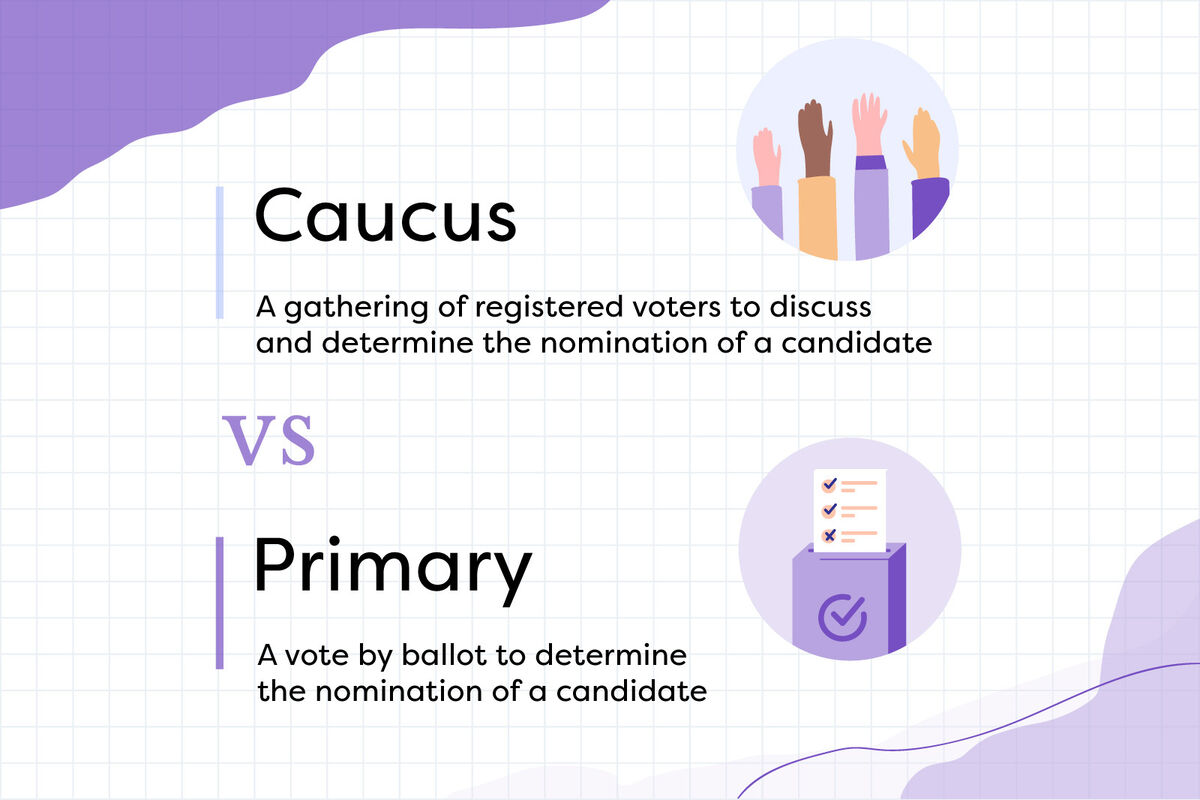
Prior to a general election, nominating a candidate for local, state, and federal office starts with a primary or caucus election. While they both serve the same purpose (nominating a candidate), primaries and caucuses have vastly different processes.
A Caucus for the People
Caucusing is a grassroots election process held at county, district and precinct levels. It’s a more hands-on process for voting for a nominee.
Caucuses generally start with registered voters going to a designated meeting place within their voting precinct. Voters physically divide themselves into groups based on the candidate they want to support. During the caucus, voters are allowed to persuade others to join their group, often through speeches.
At the end of the set time, each group does a head count, which determines the number of delegates that each candidate has won.
Origin of the Word ‘Caucus’
The exact origin of the word “caucus” still remains a mystery. Most references point to John Pickering’s A Vocabulary, or, Collection of Words and Phrases, Which Have Been Supposed to be Peculiar to the United States of America (what a mouthful). Published in 1816, Pickering’s book suggests that “caucus” originated in Boston as a significant modification of “caulker’s meetings.” Caulkers were the men who applied caulk to ships to prevent water leaks.
Others suggest that “caucus” comes from the Algonquin word caucauasu, meaning “adviser.”
Prime Time Primaries
Run by state and local governments, primaries involve voting via ballot, making them similar to general elections. Like caucuses, primaries determine the nominated candidates for local, state and federal offices.
Origin of the Word ‘Primary’
“Primary” comes from the Latin word primus meaning “first.” This refers to the fact that primaries come first in the voting process, before the general election.
Here’s Where Things Get (More) Complicated
While caucuses were once the norm, most states now have primaries. As of 2020, just five states still hold caucuses:
- Iowa
- Nevada
- North Dakota
- Wyoming
- Kentucky
Even within these states, specific rules can vary between parties. For example, Kentucky only has a caucus for Republican nominations, while Democrats vote through primary ballots.
Along with the above states, three U.S. territories also hold caucuses:
- American Samoa
- Guam
- The U.S. Virgin Islands
Open and Closed
Both primaries and caucuses can be open, closed, or a mix of the two. In open primaries and caucuses, voters can vote for any candidate of any political party. In closed primaries and caucuses, voters can only vote for candidates within their registered party.
Some states also have semi-open or semi-closed variations. With semi-closed primaries, independent and unaffiliated voters can choose which party primary they vote in.
Cast Your Vote
Your state’s Secretary of State website should provide dates for your primary or caucus procedures. You can also learn more about voting and politics: